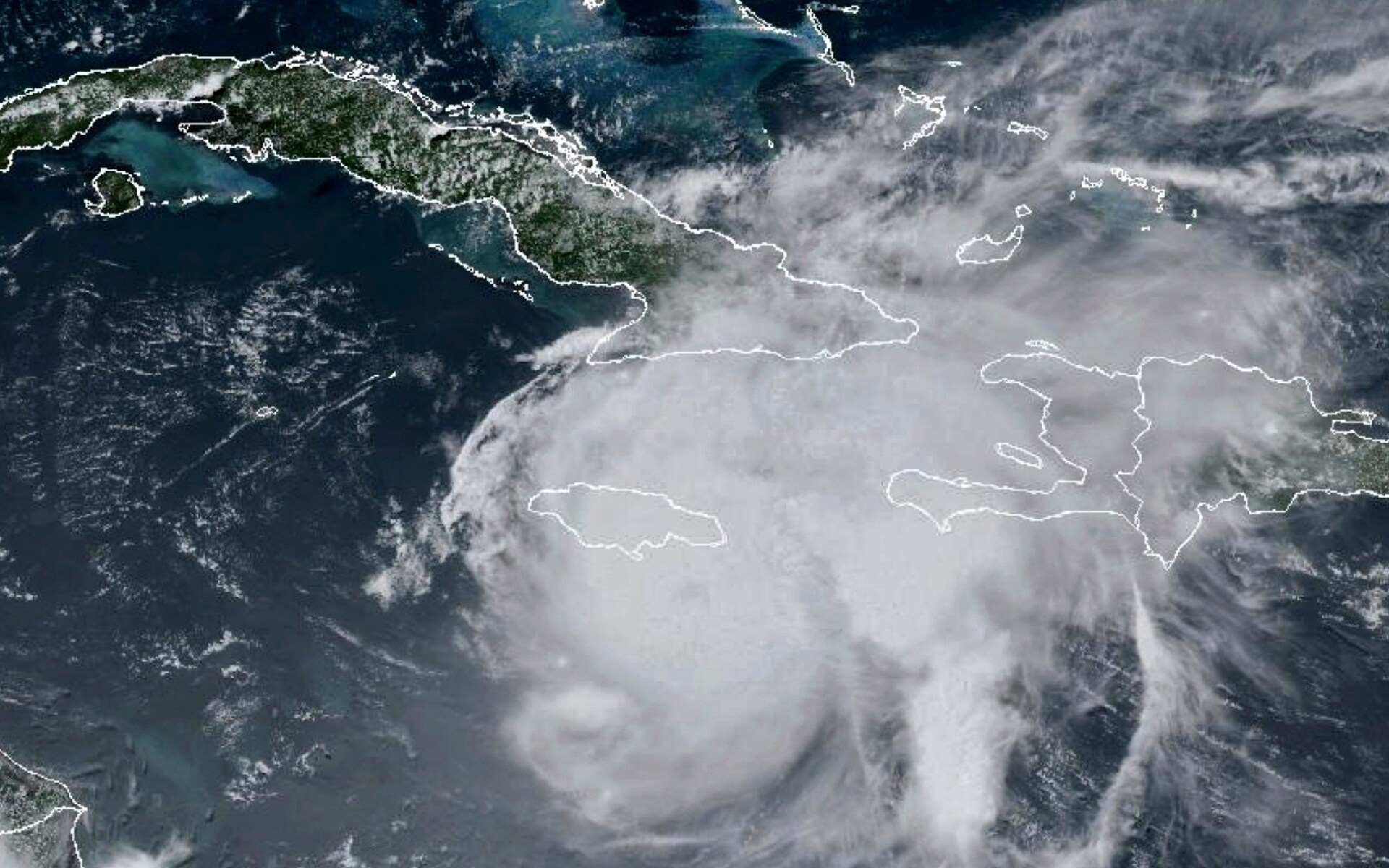
HURRICANE BERYL: HOW EARLIEST CATEGORY 5 EVER COULD DRAMATICALLY CHANGE HOLIDAY PLANS
Beryl hit the Caribbean on Wednesday, the earliest Category 5 hurricane in the Atlantic in records going back more than 100 years.
It brought winds of up to 160mph, and two months worth of rainfall in just 24 hours, leaving at least 10 dead and widespread devastation across the Caribbean.
By the middle of Thursday, Beryl had slowed to a Category 3, and was 50 miles off the coast of Grand Cayman, where it is expected to drop 4-6 inches of rain and bring life-threatening rip curls.
It is predicted to pick up intensity again before it is expected to hit the Gulf of Mexico over the weekend.
Why has the hurricane season come so early and with such intensity?
Record ocean warming is the key factor behind the intensity and early timing of the storm, scientists say.
Hurricanes develop from tropical cyclones that occur when sea temperature is at least 27C, and daily sea surface temperatures have been at record levels for the last year.
A combination of the regular El Niño phenomenon, which causes the Pacific to warm, and climate change, which is warming the planet, is behind this sea temperature rise.
“Climate change and El Niño have warmed the tropical Atlantic by 3 to 4C, creating perfect conditions for early and rapid intensification of hurricanes,” said Dr Helen Hooker, a hurricane expert at the University of Reading.
The shift away from the El Niño , which is currently happening, has also cleared the way for the hurricane, as El Niño winds tend to cut the top off or tilt a developing storm.
“Hurricanes like to stand up tall and upright,” said Dr Hooker. “So if they’re tilting, then it kind of shuts off the circulation that keeps them going.”
The world is now moving into the La Niña period, which is the cooling counterpart to El Niño. La Niña “favours hurricanes sustaining and being quite long-lived,” said Dr Hooker.
She added that Beryl had also developed at dramatic speed, developing from a tropical depression in less than two days, another expected impact of climate change.
“They can appear very quickly and intensify very quickly. And if this happens quite close to land, it doesn’t give very much time for preparation,” she said.
Warmer temperatures also lead to more evaporation and therefore more intense rainfall, as we have seen with Hurricane Beryl, which has caused flash floods.
Is this a permanent shift?
The broad trend suggests earlier and more intense hurricanes, with more rainfall in the aftermath, given the trajectory of global warming. But that doesn’t mean hurricane season will occur this early or be this devastating every year.
“It depends on other climate circulation patterns coming together,” said Dr Hooker. “Definitely this trend of a longer hurricane season is something that we will see again, but not necessarily next year.”
What has the impact been on holidaymakers?
Several airlines have cancelled flights out to the Caribbean, including Virgin Atlantic and British Airways.
British Airways cancelled flights between London Heathrow, Turks and Caicos and Montego Bay on Thursday, and said it was “working closely with our local teams in the Caribbean to understand any impact to local airports infrastructure and minimise disruption to our services”.
Jamaica’s airport is currently closed and the Foreign Commonwealth and Development Office has warned tourists to follow and monitor local and international weather updates.
Meanwhile tourists in parts of Mexico in the path of Beryl, including the popular destination of Cancun, are scrambling to get out before flights are cancelled.
Tourists are normally advised that June and early July are some of the best months to travel to the Caribbean, but the potential of an earlier hurricane season may put future holidays in doubt.
Although technology is improving predictions on where and when hurricanes will land, which can help keep people safe, infrastructure is still vulnerable.
“Even if you put up protection, if they’re this intense, category 5, and coming over an island that does not have brick buildings, they don’t stand much of a chance,” said Dr Hooker.
The rapid development of these hurricanes can also make it difficult to know how badly specific areas will be affected in advance.
2024-07-04T15:53:13Z dg43tfdfdgfd